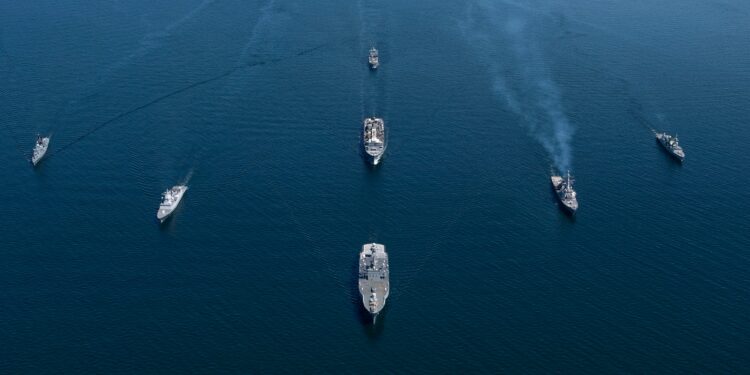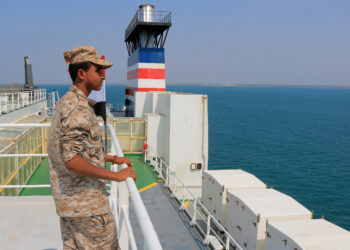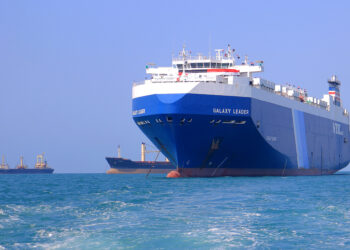Brussels – The date circled on the calendar is February 19, at the next EU Foreign Affairs Council. That is the day designated by the High Representative for Foreign Affairs, Josep Borrell, for the launch of the European naval mission that is to protect merchant ships from the Houthi attacks in the Red Sea. “It must be done quickly,” Borrell warned, to avert worsening consequences on the European economy.
It will be called Aspides, which means shield in ancient Greek. And it is designed exactly to serve as a shield: it will be a “purely defensive” mission, Borrell stressed repeatedly on the sidelines of today’s (Jan. 31) informal summit with defence ministers from EU countries. The 27 countries found a solution to the mission: some will not participate, but no one will oppose its deployment. They found “political understanding on the main parameters of the operation,” which “will be formalized” no later than Feb. 19. A further political step will take place at the level of EU heads of state and government: European sources confirmed that the 27 leaders will discuss this at the extraordinary European Council to be held tomorrow in Brussels.
The main issue to be resolved is which country will take over its command and where the headquarters will be located. Italy, France, and Greece have put forward their candidacy. “It’s not a race, the important thing for us is that this mission starts, that it’s joint, that as many European countries as possible are involved,” Italian Defense Minister Guido Crosetto said on the sidelines of the Council proceedings, at the microphones of RaiNews24. In the morning he urged the EU to “take a more concrete and less bureaucratic stance because the times we live in require speed and pragmatism.”
Seven European countries will provide the manpower and three ships requested by the EU’s External Action Service to make the necessary impact in the area, although Borrell said that “we will put at sea ships and means proportional to the threat we face,” leaving the door open for further changes. The point that remains firm is that Aspides “will not conduct any land operations” on Yemeni soil.
As if to reaffirm independence from the US-led Prosperity Guardian mission, in which some European countries also participate, but with which “clearly we will coordinate,” the head of European diplomacy clarified.
English version by the Translation Service of Withub


![Nave cargo nello stretto di Suez [foto: Daniel Csorfoly, Wikimedia Commons]](https://staging.eunews.it/wp-content/uploads/2024/01/SuezCanal4_byDanielCsorfoly-350x250.jpg)




